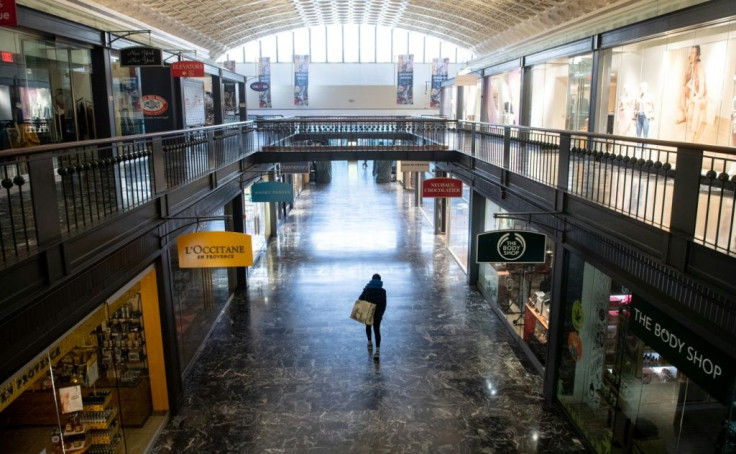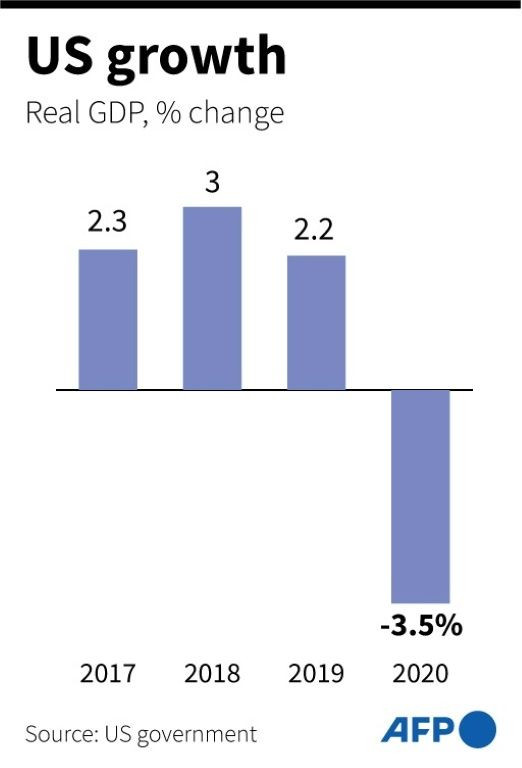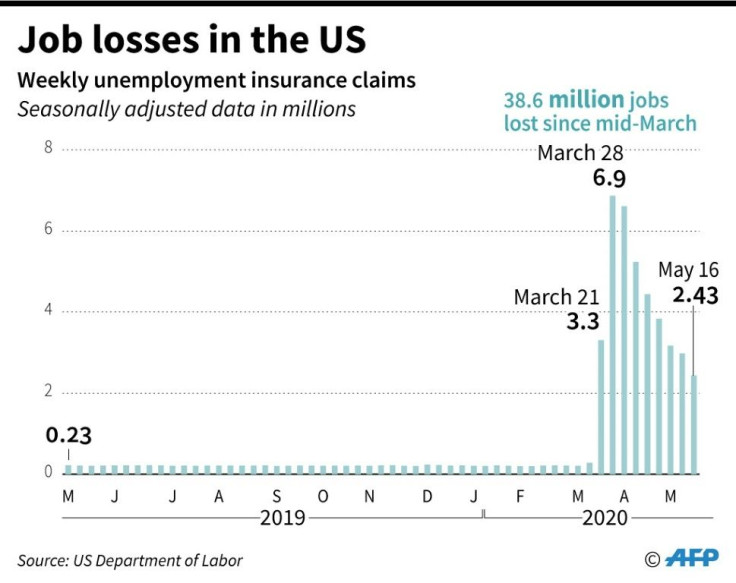Pandemic Caused Worst Year For US Economy Since 1946
The United States saw its sharpest contraction in growth since 1946 as the coronavirus pandemic hammered the economy last year, but while the country may be set for a recovery, it hasn't arrived yet.
The world's largest economy shrunk by 3.5 percent in 2020, the Commerce Department reported on Thursday, after Covid-19 rearranged daily life and forced many businesses to shut down or change their operations while laying off workers in droves.
Those mass layoffs, which began in March as the pandemic intensified, continue to take a toll, with the Labor Department reporting nearly 1.3 million new claims for unemployment benefits filed last week.
The data underscores the job awaiting President Joe Biden, who took office just over a week ago promising to get the country back on track with a $1.9 trillion spending proposal that's an initial salvo against the twin economic and health crises.

"Today's data suggests a significant slowing of our economic recovery," director of the White House's National Economic Council Brian Deese said.
"Without swift action, we risk a continued economic crisis that will make it harder for Americans to return to work and get on back their feet. The cost of inaction is too high."
But by this point, analysts agree there's only so much the government can do to support the economy, which won't be back to normal until the raging virus is done away with or has at least been brought to manageable levels.
"Additional fiscal stimulus and broader vaccine diffusion should support an improved labor market in the spring, but claims are expected to remain high in the near term as the pandemic continues to restrict activity, with new strains of the virus a concern," Nancy Vanden Houten of Oxford Economics said.

The pandemic caused an unheard-of whipsaw in the growth, with the economy contracting a record 31.4 percent annualized in the second quarter of 2020 when the pandemic's restrictions were at their most severe, then shooting back up 33.4 percent the next quarter as businesses reopened.
In the fourth quarter, GDP grew by an annual rate of 4.0 percent, according to the Commerce Department's first estimate for the final three months of last year.
That wasn't enough to stop 2020 from seeing an overall contraction, which the government said was caused by a drop in spending as well as in "exports, private inventory investment, nonresidential fixed investment, and state and local government."

Net exports fell 13 percent last year while personal consumption expenditures dropped 3.9 percent.
The declines were partially offset by the strong housing market and federal government spending like the trillions of dollars in stimulus money Congress passed last year amid the pandemic.
"Against the risk of excessive winter pessimism, we believe in spring optimism," Gregory Daco of Oxford Economics said.
Even if Biden's stimulus bill is eventually watered down by cost-conscious lawmakers, that -- combined with the effects of Covid-19 vaccine drives and a recovery in the employment market -- could cause the economy to expand by 5.5 percent in 2021, he said.
But if the job market is in for a recovery, the wait continues for now.
The Labor Department reported 847,000 new seasonally-adjusted filings for regular unemployment benefits, fewer than the week prior and still above the single worst week of the 2008-2010 global financial crisis, 10 months after the mass layoffs began.
Another 426,856 claims, without seasonal adjustment, were made under a special program for workers not normally eligible for aid, while the data also showed more and more workers claiming benefits under programs for the long-term unemployed.
All told, nearly 18.3 million people were receiving some form of assistance as of the week ended January 9, and Rubeela Farooqi of High Frequency Economics said that massive number is unlikely to decrease meaningfully until the pandemic can be tamed.
"Conditions will remain weak and recovery will be slow until infections can be curbed, and the economy can reopen more completely," she said in an analysis.
Yet even as joblessness surged last year, home buying did too, as those who could afford it took advantage of low interest rates to make major property purchases.
The Commerce Department estimated on Thursday 811,000 new homes were sold in 2020, the most since 2006.
© Copyright AFP 2024. All rights reserved.





















